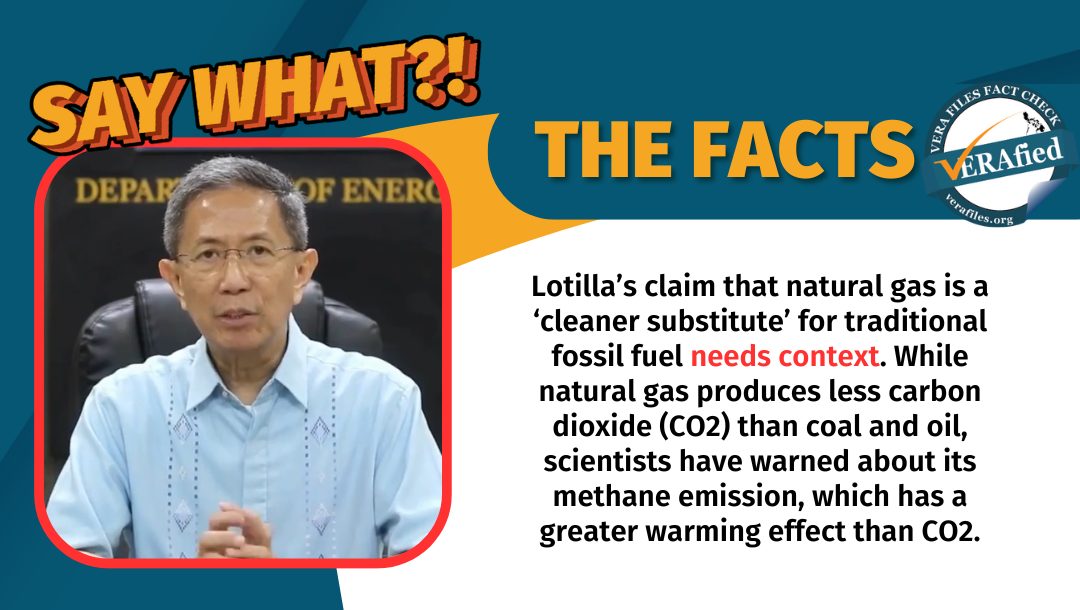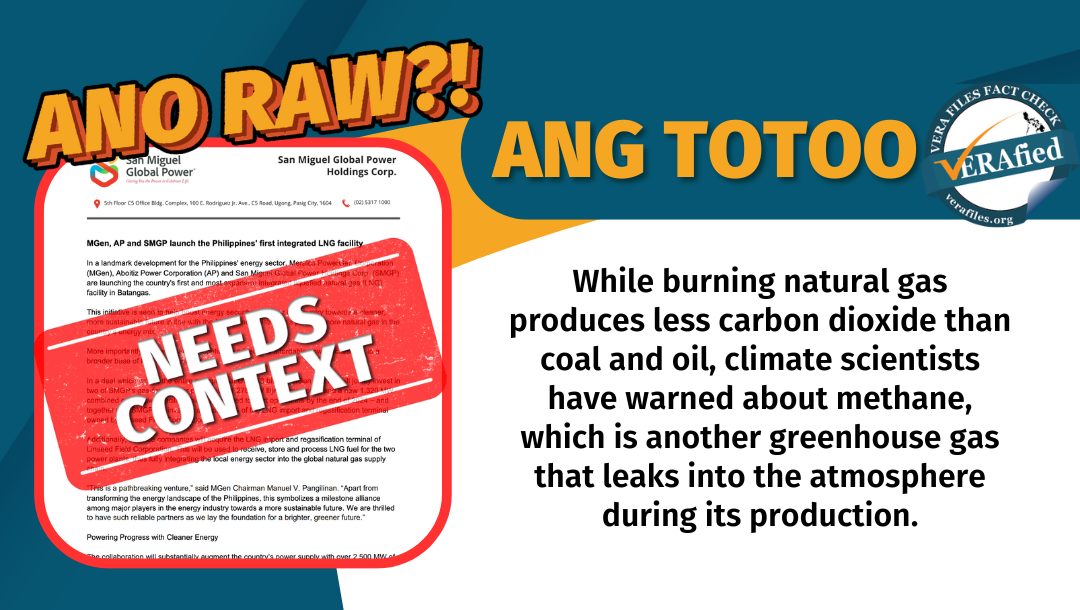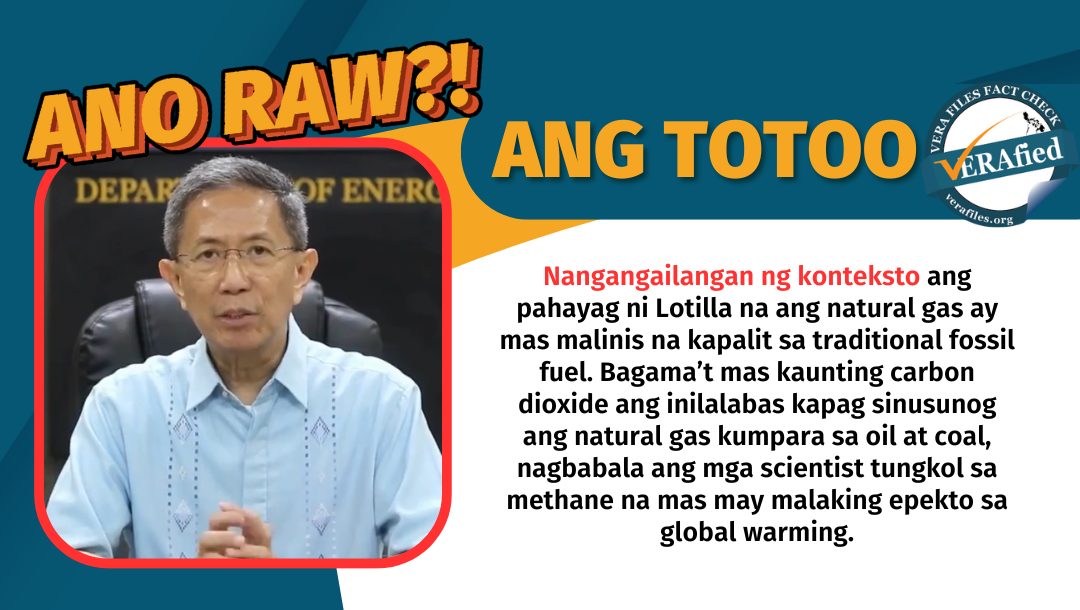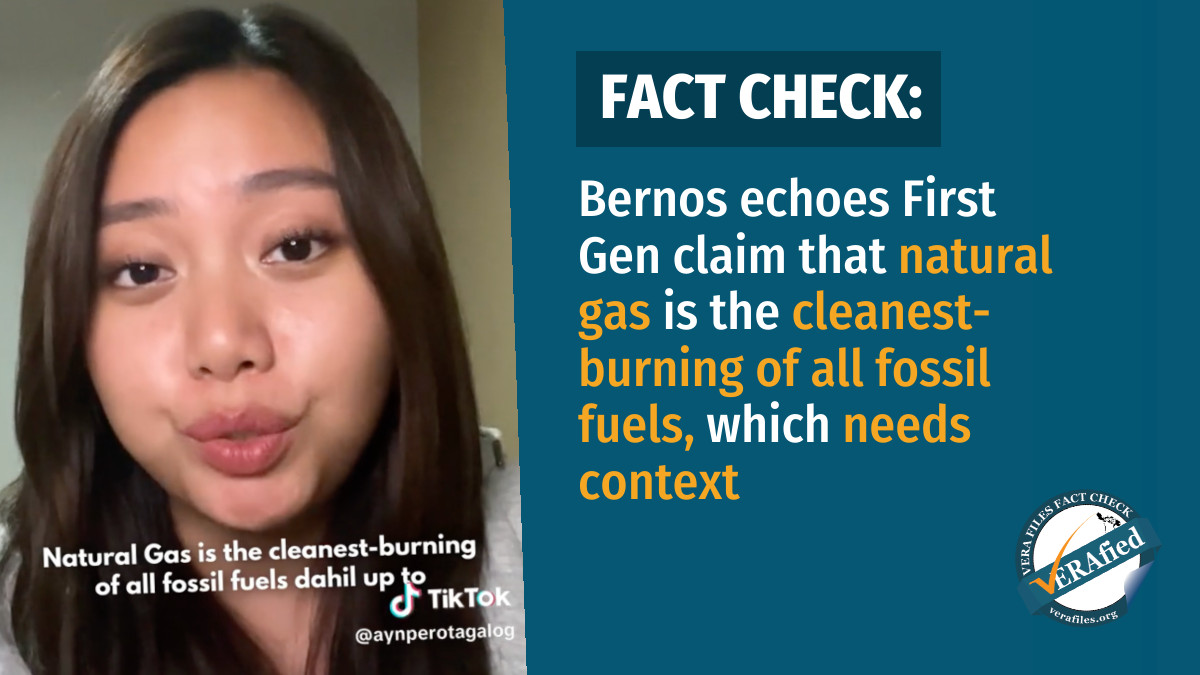In emphasizing the role of natural gas in the Philippine energy mix, Energy Secretary Raphael Lotilla repeated his claim that it is “cleaner” than traditional fossil fuels. This needs context.
STATEMENT
In a June 18 forum hosted by Stratbase ADR, Lotilla said:
“Exploration and development of these resources, including the building of necessary infrastructure, will certainly take time, making it essential to have a reliable energy transition source in the meantime. This is where LNG (liquefied natural gas) plays a crucial role, serving as a cleaner substitute for traditional fossil fuels.”
Source: Stratbase ADR Institute, Advancing Energy Security: Fueling Sustainable Progress with Liquefied Natural Gas (LNG), June 18, 2024, watch from 32:39 to 33:05
FACT
While natural gas produces less carbon dioxide (CO2) than coal and oil, scientists have warned about the leak of methane from natural gas production.

Methane, a greenhouse gas, has a warming effect 80 times greater than that of CO2.
Recent measurements of methane emissions from oil and gas operations “are much higher than was estimated,” said Mark Radka, noting that these undermine its credentials as a “better fossil fuel.” Radka heads the United Nations Environment Program Energy and Climate Branch.
The Massachusetts Institute of Technology’s (MIT) Climate Portal further noted that recent research suggests that reduced carbon emissions from natural gas are “inflated” because of methane.
“We’re definitely under-accounting natural gas’ contribution to global warming relative to coal,” said Desirée Plata, an associate professor of Civil and Environmental Engineering and director of the MIT Methane Network.
Responding to VERA Files’ inquiry via email, the Department of Energy (DOE) said it is aware of the risks brought by methane emissions from LNG.
“To avoid this situation, it is the industry practice that the production, storage and utilization of natural gas are designed to be properly contained with flaring as a safety measure if leak happens,” said Rino Abad, director of the agency’s Oil Industry Management Bureau.
Abad explained that gas flaring, or burning off gas that comes out while drilling for oil, is done when the gas produced may raise “potential safety concerns.” He explained this is relatively safer than releasing natural gas into the atmosphere.
The World Bank, however, reported that gas flaring significantly contributes to climate change. It said that in 2023, global gas flaring increased by 9 billion cubic meters (bcm) to 148 bcm—the highest level since 2019.
For this reason, the World Bank calls on governments, operators, and stakeholders worldwide to “prioritize sustained action” to minimize gas flaring and methane emissions from oil and gas operations.




